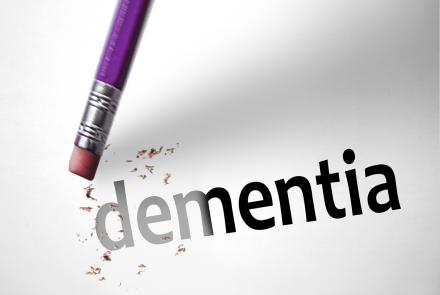
A look at how music tends to make life so much better for those suffering from dementia
“Music has power for individuals with all types of dementias and it can spark convincing outcomes at any stage of the disease when used appropriately. For example, the type/choice or duration of music at each stage of the disease has to be taken into account”, says Nilanjana Maulik, Secretary General of ARDSI (Alzheimer’s and Related Disorders Society of India), Kolkata.
Most people enjoy music, but can it actually make the mind “move”? Absolutely, according to Kimmo Lehtonen, PhD, professor of education at the University of Turku (Finland) and a clinical music therapist for more than 25 years. In fact, therapists have been using music therapy to promote memory and a sense of self in the treatment of older adults with dementia.
So what is the link between music and emotion?
Music therapy has many faces,” says Prof. Lehtonen. “With older adults, I mainly use old wartime songs, which seem to bring many lively memories to their minds. Music has a close relationship with unconscious emotions, which are activated by musical movement. To me, music represents a microcosmos which has a close relationship to our inner feelings. These feelings are so strong, they’re meaningful even if patients cannot remember who they are.”
Does Music Therapy help in improvement in Dementia?
Diana Kerr, Consultant on Dementia and the author of the book, Singing Groups for People with Dementia says: “Playing the right music when people are eating will improve the amount they eat. Singing at times of intimate care reduces challenging behaviour. Music will not improve the condition, but it will improve the person’s experience and therefore their experience of the condition.”
Nilanjana says: “There is no evidence that shows that music therapy as an intervention is in any way directly linked to improvement of the illness itself. This is because the illness is a progressive disorder and has no cure at present.
However, what research has proved is that as a therapy it definitely improves the symptoms associated with the illness. For example, we have physiological responses to music. We have used fitbit ( a wireless wrist band that tracks activity like sleep/steps/heartbeat) to monitor the effect of music-type/duration etc with our clients in a daycare centre and seen that every time their breathing quickened, or heart-rate increased, when they listened to a particular music for a certain time period and at a certain time of the day.
Music has also been found to tap into emotions. We have seen a client listen to his favourite Mohd. Rafi song, the qawali “ Parda Hai Parda” and crying all the way with it. This phenomenon of listening to a particular music which in turn makes him feel in a certain way - we use it in a “therapeutic” way.
Music also helps improve the attention skills. We have this particular client in our home care programme who was professionally associated with music for ages but after the development of dementia, his attention skill was compromised. However, the use of music therapy again showed marked improvement in his attention and we could engage him for hours in it.
Music further taps into our memories and is known to be second only to smell for it’s ability to stimulate our memories in a very powerful way. We have countless stories of how music stimulates our clients to reminisce about their life. One lady client could recount her wedding day after she heard the instrument “Shehnai” being played in the background. In traditional Bengali weddings, the use of “Shehnai” is a norm.
At what stage of dementia is music recommended?
Nilanjana Maulik says: Music has power for individuals with all types of dementias and it can spark convincing outcomes at any stage of the disease when used appropriately. For example, the type/choice or duration of music at each stage of the disease has to be taken into account. In the early stage, I usually recommend music that the person liked in the past, experiment with various types of outdoor concerts, encourage the person to start playing instrument that he or she played before or sometimes try unfamiliar music to develop new responses.
In the middle stages, music should be introduced in song sheets or a karaoke player so the individual can sing along. We also use familiar, relaxing and non-rhythmic music as an intervention to counter behaviours of concern like sundowning ( a particular syndrome that a person with dementia may experience usually around sunset when he is confused or sometimes even agitated ) or sleep disturbances. Very often, we also use peppy music to improve balance or gait as the individual is walking and overall a lot of background music throughout the day to enhance the mood.
In the late stages, we generally use soothing music to provide a sense of comfort but also sometimes do drumming or rhythm-based activities to enhance the mood. In our home companionship programmes for late stage persons, we have successfully used music from their childhood, such as folk songs and singing these songs in the language in which they were learnt have sparked the greatest involvement, even for bed-ridden persons.
One last but very important aspect that we maintain in all stages when using music as an intervention is to use our facial expressions to communicate feelings as the music plays in the background.
How long does the effect of the music last?
“Some people suffering from dementia will forget that they have been involved in music making but this does not matter. Whilst they are involved, they are calmer and happier and having fun. As people with dementia tend to live more in the moment, we need to make each moment as positive as possible. Even if they forget they have been singing, the effect will stay on so people will be calmer and happier for some time after the music has stopped,” says Diana Kerr, Consultant on Dementia and the author of the book, Singing Groups for People with Dementia.
According to Nilanjana, how long its effect lasts greatly depends on which stage of the disease the client is experiencing and also on the length of exposure to music.
The Alzheimer’s Foundation of America says: Music has power—especially for individuals with Alzheimer’s disease and related dementias. And it can spark compelling outcomes even in the very late stages of the disease. When used appropriately, music can shift mood, manage stress-induced agitation, stimulate positive interactions, facilitate cognitive function, and coordinate motor movements.
Nilanjana says: “In relation to music therapy, I can only say that we have seen people with dementia, who have perhaps lost the ability to learn new things can sometimes hum an entirely new song perfectly well. I can share a case study of a gentleman from our daycare centre, who was a Hindustani classical singer all his life and was never introduced to western music. However, well into his disease, along with Indian classical, one day we introduced Frank Sinatra’s “Autumn Leaves” and after hearing it twice, we requested him to hum the tune and he did it perfectly well.
All we, as caregivers, need is to consider the right level of stimulation and challenge for the individual along with individualised and creative ways to explore to maximise the use of the individual’s strengths.”
How structured is Music Therapy?
Diana Kerr says: “If you mean a singing group then it all depends on the size of the group and the competence of the leader and the number of helpers. The big groups have to be well-structured. People with dementia get agitated very easily so if there are extended moments when there is uncertainty or confusion then this will agitate them. So we find it is good to keep a structure in which there is some flexibility.”
Nilanjana says: “To me, any intervention to be successful has to come in a structured pattern and implemented consistently to arrive at desired results.
Music in itself is predictable, structured and organised and often has a predictable steady beat, organised phrases and a structured form. Music is organised in a way that we enjoy listening to it over and over again because our brains really like this predictability and structure. Say for example, when we introduce lullaby type of a song before bedtime for restless clients and use the same song every night, we have found that the person begins to associate that same song with the act of relaxing during bedtime”.
Music Therapy in Home Settings
Nilanjana says: Music therapy in home settings will be an innovative service for future healthcare delivery. Again, I will share the recommendations based on our experiences of introducing it in home settings:
- Start with assessing the personal preferences of the individual client when choosing the music and the music therapist.
- Consider variety of music therapy interventions and techniques, including active as well as receptive music therapy approaches, music listening programmes etc.
- Make available basic technical equipment like CD’s, headphones, laptops etc.
- Make available a few musical instruments like percussion, guitar at the setting as the music therapist will not be able to carry too many instruments with him or her.
- Consider combining music listening programmes with additional therapeutic techniques, like guided imagery, gentle massages, or movements, drawing or painting.
- The duration of sessions can be between 20 to 60 minutes
- The frequency can differ from one hour each day for seven days, to twice a day, and from a few times a week to as often as the client wants.
- Involvement of a family member during music therapy is important from many perspectives. One, they can give important and precise information about the client’s likes and dislikes and secondly, they can be involved in the session to enjoy time together.
Music Therapy in Community Settings
Nilanjana says: Over time, we realised that to make music therapy effective in a community setting, we needed to offer a systematic and strategically focused programme that will address the group as a whole. It has to be more like a 'project work' rather than an ongoing process; it will also include performance aspects and has to be led by the participants rather than the music therapist as an expert. Additionally, the backgrounds of the participants are taken into account, their preferences and cultural contexts and how many people are worked with, what resources are available in the place where the work takes place, what continuity and depth of work is possible in future and what status and rewards are given by the management to the work that is accomplished .








